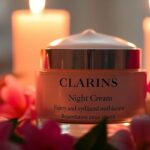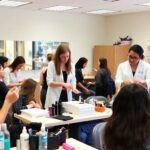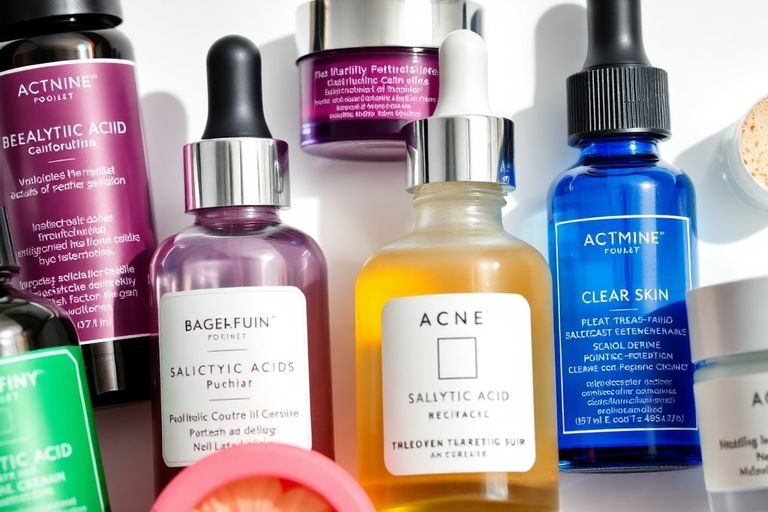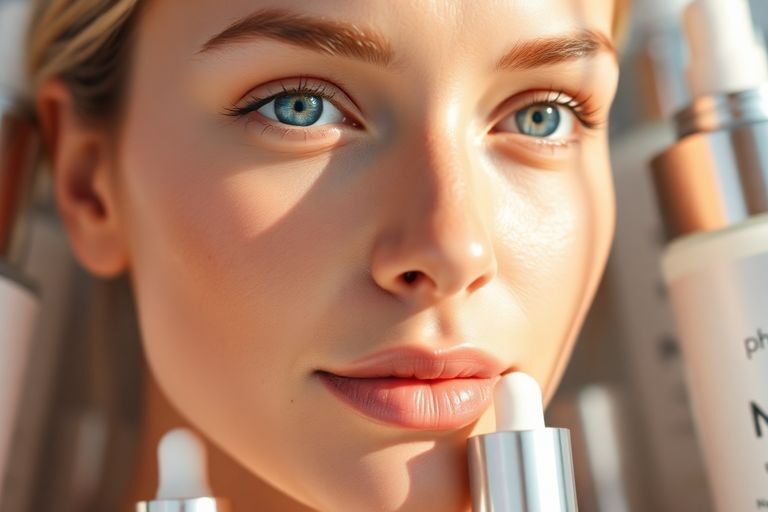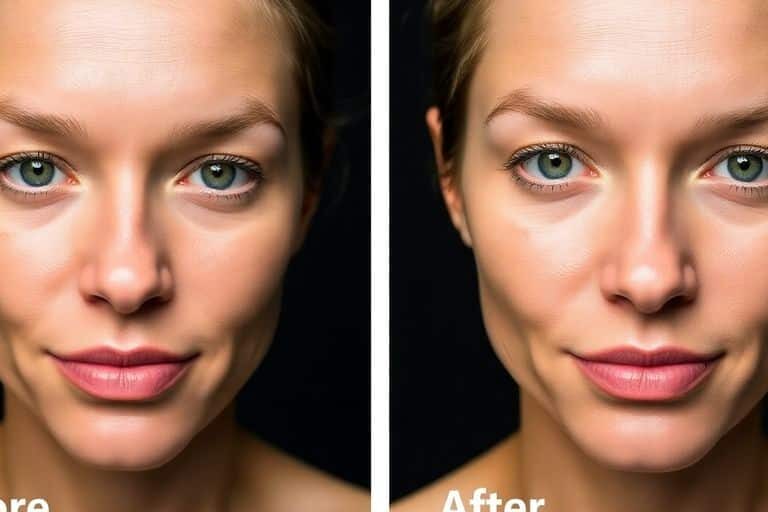If you’re looking to kickstart a career in the aesthetics industry, Birmingham is a fantastic place to begin. With a range of aesthetic courses available, aspiring professionals can gain the knowledge and skills needed to excel in this growing field. In this article, we’ll explore the best aesthetic courses Birmingham has to offer, highlighting key institutions, course content, and the career opportunities that await graduates.
Key Takeaways
- Birmingham offers a variety of aesthetic courses tailored for different skill levels and career paths.
- Accreditation is essential for ensuring the quality and recognition of your aesthetic qualifications.
- Courses typically include both theoretical learning and hands-on practical experience.
- Graduates can explore numerous job opportunities in aesthetics, including specialisations in injectables and skincare.
- Studying in Birmingham provides access to industry experts and networking opportunities that can enhance career prospects.
Understanding Aesthetic Courses in Birmingham
Overview of Aesthetic Education
So, you’re thinking about getting into aesthetics? Good choice! It’s a growing field, and Birmingham has some solid options. Basically, aesthetic education is all about learning the science and art behind cosmetic treatments. This includes everything from understanding skin anatomy to mastering techniques like laser therapy and chemical peels. It’s not just about making people look good; it’s about doing it safely and ethically.
- Learning about different skin types and conditions.
- Understanding the science behind aesthetic treatments.
- Developing practical skills in performing procedures.
Importance of Accreditation
Accreditation is super important. I can’t stress this enough. You want to make sure the course you choose is properly accredited. This means it meets certain standards and that your qualification will be recognised by employers and professional bodies. Without accreditation, you might find it hard to get insurance or find a job. Always check the accreditation details before you sign up for anything.
Think of accreditation as a quality stamp. It shows that the course provider is serious about delivering high-quality education and that they’re committed to meeting industry standards. It’s your guarantee that you’re getting a worthwhile education.
Types of Aesthetic Courses
There’s a whole range of aesthetic courses out there, so you can find something that fits your needs and career goals. Here’s a quick rundown:
- Foundation Courses: These are great if you’re just starting out. They cover the basics of skincare, anatomy, and common aesthetic procedures.
- Advanced Courses: If you already have some experience, you can take advanced courses to specialise in areas like botox, fillers, or laser treatments.
- Degree Programmes: Some universities offer degree programmes in aesthetics, which provide a more in-depth academic understanding of the field. For example, University College Birmingham offers an Aesthetics BA (Hons) / FdA degree.
- Short Courses and Workshops: These are ideal for learning specific skills or techniques in a short amount of time. They’re often offered by training academies and industry experts.
Key Institutions Offering Aesthetic Courses
Choosing the right place to study is a big deal. Birmingham has some solid options for aesthetic courses, each with its own vibe and specialities. I’ll walk you through a few key players.
University College Birmingham
University College Birmingham offers an Aesthetics BA (Hons) / FdA degree that’s pretty comprehensive. It’s designed to give you a good understanding of the science, culture, and ethics behind the aesthetics industry.
- They’ve got optional pathways in business or training, so you can tailor your learning.
- They work with brands like Lynton and Mesoestetic, which keeps the course content current.
- You might even get to visit the Mesoestetic production facility in Spain. How cool is that?
The course isn’t just about the practical stuff; it’s about understanding the ‘why’ behind the procedures. They want you to think critically about the impact of aesthetics on people’s lives.
Harley Academy
I’ve heard good things about Harley Academy. They’re known for their focus on practical skills and advanced techniques. If you’re serious about getting hands-on experience, this could be a good shout. They seem to focus on more advanced dermal filler training courses.
Local Training Providers
Don’t overlook the smaller, local training providers. Sometimes, these places offer more personalised attention and can be a bit more flexible with their courses. Plus, they often have strong links with local clinics and salons, which can be great for networking. Do your research and see what’s out there!
Curriculum Highlights of Aesthetic Courses

So, you’re thinking about diving into the world of aesthetics? Awesome! Let’s have a look at what you can expect from the curriculum of aesthetic courses in Birmingham. It’s not just about learning the procedures; it’s about understanding the science, the ethics, and the art behind them. I’ll break it down for you.
Theoretical Foundations
First up, the theory. This is where you’ll build the base knowledge you need. You’ll learn about skin anatomy, ageing processes, and the science behind various treatments. It’s like learning the rules of the game before you start playing. Expect to cover topics like:
- Skin biology and physiology
- Product ingredients and their effects
- Client consultation and assessment
- Health and safety regulations
- Ethical considerations in aesthetics
Understanding the theoretical side is super important. It’s not enough to just know how to do something; you need to know why you’re doing it. This knowledge will help you make informed decisions and provide the best possible care for your clients.
Practical Applications
Okay, now for the fun part – getting hands-on! This is where you’ll put the theory into practise. You’ll be working with models (sometimes even real clients, depending on the course) to learn how to perform different aesthetic procedures. This could include:
- Injectables (like Botox and fillers)
- Laser and light therapies
- Chemical peels
- Microneedling
- Skincare treatments
It’s all about getting comfortable with the techniques and developing your skills under the supervision of experienced instructors. You’ll also learn how to handle complications and manage client expectations. Hands-on practise with live cosmetic models and ongoing aftercare support is key.
Industry-Relevant Skills
Finally, aesthetic courses aren’t just about the treatments themselves; they also equip you with the skills you need to succeed in the industry. This includes things like:
- Business management and marketing
- Client communication and customer service
- Record-keeping and documentation
- Staying up-to-date with industry trends
- Networking and professional development
These skills are essential for building a successful career in aesthetics. You’ll learn how to attract and retain clients, manage your finances, and promote your services effectively. Plus, you’ll have opportunities to network with other professionals and learn from their experiences. Industry links are very important for staying up-to-date.
Career Opportunities After Aesthetic Training
So, you’re thinking about what comes after the aesthetic course, eh? Good thinking! It’s not just about learning the skills; it’s about where those skills can take you. Let’s have a look at the possibilities.
Job Prospects in Aesthetics
The aesthetics industry is booming, and that means more jobs! Aesthetic medicine provides various career opportunities in private clinics and practises. From working in established clinics to starting your own business, the options are pretty diverse. You could be offering treatments like anti-wrinkle injections, dermal fillers, or advanced skincare therapies. The demand for qualified practitioners is definitely there, especially as people become more aware of and interested in these treatments. Completing a cosmetic dermatology course can be the perfect start to a medical career.
Specialisations Available
One of the cool things about aesthetics is that you can really niche down and specialise in what you love. Fancy becoming a laser expert? Or maybe you’re more into skin rejuvenation? Here are a few specialisations to consider:
- Medical Aesthetics: Focus on treatments like laser hair removal, skin resurfacing, and treating skin conditions.
- Cosmetic Injectables: Become a pro at administering Botox and fillers to enhance facial features and reduce signs of ageing.
- Skincare Specialist: Concentrate on providing advanced skincare treatments, such as chemical peels and microdermabrasion, and recommending personalised skincare routines.
Choosing a specialisation allows you to really hone your skills and become known as an expert in that area. It can also help you attract a specific type of client, which can be great for building your business.
Networking and Professional Growth
It’s not just about what you know, but who you know. Networking is super important in the aesthetics world. Attend industry events, join professional organisations, and connect with other practitioners. This can open doors to new opportunities, collaborations, and even mentorships. Plus, continuous professional development (CPD) is key. Keep learning, keep improving, and keep up with the latest trends and techniques. This will not only make you a better practitioner but also boost your career prospects. Our aesthetics course is designed with two pathways – training or business – with optional modules based on your choice of pathway.
Benefits of Studying Aesthetics in Birmingham
Birmingham is becoming a real hub for aesthetic training, and honestly, there are some great reasons to consider studying here. It’s not just about the courses themselves, but also the environment and the opportunities that come with it. Let’s break down some of the key advantages.
Access to Leading Experts
One of the biggest perks of studying aesthetics in Birmingham is the chance to learn from some of the best in the business. Many courses bring in industry experts as guest speakers and lecturers. This means you’re not just getting textbook knowledge; you’re hearing from people who are actively shaping the field. These experts often share their real-world experiences, insights into the latest trends, and practical tips that you won’t find in any textbook. It’s a fantastic way to get a head start and build connections.
Diverse Learning Environment
Birmingham is a melting pot of cultures and backgrounds, and this diversity extends to its educational institutions. Studying aesthetics here means you’ll be learning alongside people from all walks of life, each bringing their unique perspectives and experiences to the table. This creates a really rich and stimulating learning environment where you can broaden your horizons and develop a more nuanced understanding of aesthetics in a global context. Plus, you’ll be making friends and building relationships with people from different backgrounds, which can be incredibly valuable both personally and professionally. The aesthetic skin courses are designed to improve client satisfaction.
Cultural and Professional Networking
Birmingham’s location makes it a great place to network. The city hosts numerous industry events, conferences, and workshops throughout the year, providing ample opportunities to meet potential employers, mentors, and collaborators. Plus, the city’s vibrant cultural scene means there’s always something to do and see, which can help you unwind and recharge after a long day of studying. It’s all about striking that balance between work and play, and Birmingham offers the perfect setting for both.
I’ve found that the connections I’ve made in Birmingham have been invaluable. From meeting potential employers at industry events to collaborating with fellow students on projects, the networking opportunities here are second to none. It’s really helped me to build my confidence and expand my professional circle.
Entry Requirements for Aesthetic Courses

So, you’re thinking about taking an aesthetic course in Birmingham? Awesome! But before you jump in, let’s talk about what you’ll need to get accepted. Entry requirements can vary depending on the course and the institution, so it’s always best to check directly with the provider. However, here’s a general overview to give you an idea.
Academic Qualifications
Generally, aesthetic courses will require some level of prior academic achievement. For degree-level courses, like a BA (Hons) in Aesthetics, you’ll typically need A-levels or equivalent qualifications. For example, University College Birmingham might ask for an A-level grade profile of CDD, a T-level graded Pass, or a BTEC grade profile of MMP. They also accept other Level 3 qualifications, requiring a minimum of 80 UCAS Tariff points. GCSEs in Science/Biology at grade 9-4/A*-C or equivalent are often needed too.
For shorter, more specialised courses, the entry requirements might be less stringent. Some courses might accept students with a good level of general education, while others might require specific qualifications in science or healthcare. It really depends on the depth and complexity of the aesthetic training.
Professional Background
Some aesthetic courses, particularly those focusing on advanced techniques like dermal fillers or anti-wrinkle injections, are specifically designed for medical professionals. This could include doctors, nurses, dentists, or other healthcare practitioners. If that’s you, you’ll likely need to provide proof of your professional registration and qualifications.
However, don’t worry if you’re not a medical professional! There are plenty of courses available for non-medics too. These courses often start with the basics, like anatomy and physiology, and gradually build up your skills and knowledge. For example, a Pathway to Aesthetics course might be designed for non-medical professionals eager to kickstart a career in the field. Completing such a course can allow you to gain full insurance to become an aesthetics practitioner.
Application Process
The application process will vary depending on the institution. For university courses, you’ll usually need to apply through UCAS. For private training providers, you’ll typically apply directly to the provider. Be prepared to provide evidence of your qualifications, such as certificates and transcripts.
Some providers might also ask you to attend an interview. This is a chance for them to assess your suitability for the course and for you to ask any questions you might have. They might want to check that you have a good understanding of skincare and anatomy and physiology.
It’s always a good idea to research the specific entry requirements for the courses you’re interested in and to contact the providers directly if you have any questions. They’ll be able to give you the most up-to-date and accurate information.
Here’s a quick summary table:
| Requirement | Degree-Level Courses (e.g., BA) | Shorter/Specialised Courses | Medical Professional Courses | Non-Medical Professional Courses |
|---|---|---|---|---|
| Academic Qualifications | A-levels, BTEC, UCAS points | Varies, may be less strict | Relevant medical qualifications | Varies, may start with basics |
| Professional Background | Not always required | Not always required | Required | Not required |
| Application Process | UCAS or direct application | Direct application | Direct application | Direct application |
Student Experiences in Aesthetic Courses
Testimonials from Graduates
Hearing directly from those who’ve completed aesthetic courses can give you a real insight into what to expect. I’ve spoken to a few graduates, and their experiences are incredibly diverse, but there are some common threads. Many highlight the supportive learning environment and the practical skills they gained. It’s not just about theory; it’s about getting hands-on experience.
- Some graduates rave about the industry connections they made during their courses.
- Others talk about how the courses boosted their confidence.
- A few mentioned the challenges of balancing study with other commitments, but all agreed it was worth it.
Real-World Applications
One of the most important aspects of any aesthetic course is how well it prepares you for the real world. It’s all well and good learning the theory, but can you actually apply it? From what I’ve gathered, the best courses in Birmingham focus heavily on practical application. This includes things like clinic sessions, case studies, and workshops.
I think it’s vital to get as much hands-on experience as possible. Shadowing experienced practitioners and working on real clients is invaluable. It’s where you really learn to troubleshoot and adapt your skills.
Support Services for Students
Starting a new course, especially one as demanding as aesthetics, can be daunting. That’s why it’s important to consider what support services are available. The good news is that many institutions in Birmingham offer comprehensive support to their students. This can include academic support, career advice, and even counselling services.
- Academic support: Help with assignments, study skills, and understanding complex concepts.
- Career advice: Guidance on job applications, interview techniques, and building your professional network.
- Counselling services: Support for your mental and emotional well-being.
Final Thoughts on Aesthetic Courses in Birmingham
In conclusion, Birmingham offers a fantastic range of aesthetic courses that cater to both newcomers and seasoned professionals. Whether you’re looking to start your journey in aesthetics or enhance your existing skills, there’s something for everyone. The courses not only cover the essential theories and practical skills but also provide valuable industry connections and real-world experience. With the growing demand for qualified practitioners in the aesthetics field, now is a great time to consider these opportunities. So, if you’re ready to take the next step in your career, exploring these courses could be your ticket to success in the vibrant world of aesthetics.
Frequently Asked Questions
What are aesthetic courses?
Aesthetic courses teach students about beauty treatments and skincare. They cover things like skin health, non-surgical procedures, and how to use different products safely.
Why is it important to choose an accredited course?
Choosing an accredited course means the training meets high standards. This can help you get better jobs and shows employers you have quality education.
What types of aesthetic courses are available in Birmingham?
In Birmingham, you can find different types of aesthetic courses. These include diplomas in skincare, advanced training in injectables, and even degree programmes.
What career options can I pursue after completing an aesthetic course?
After finishing an aesthetic course, you can work as a beauty therapist, skincare consultant, or even start your own beauty business. There are many paths you can take!
What are the entry requirements for aesthetic courses?
Entry requirements can vary by course. Generally, you may need certain GCSEs or A-levels, and sometimes work experience in beauty or healthcare can help.
What can I expect during my studies in aesthetic courses?
During your studies, you will learn both theory and practical skills. This includes hands-on training, lectures, and possibly even work placements to gain real experience.

